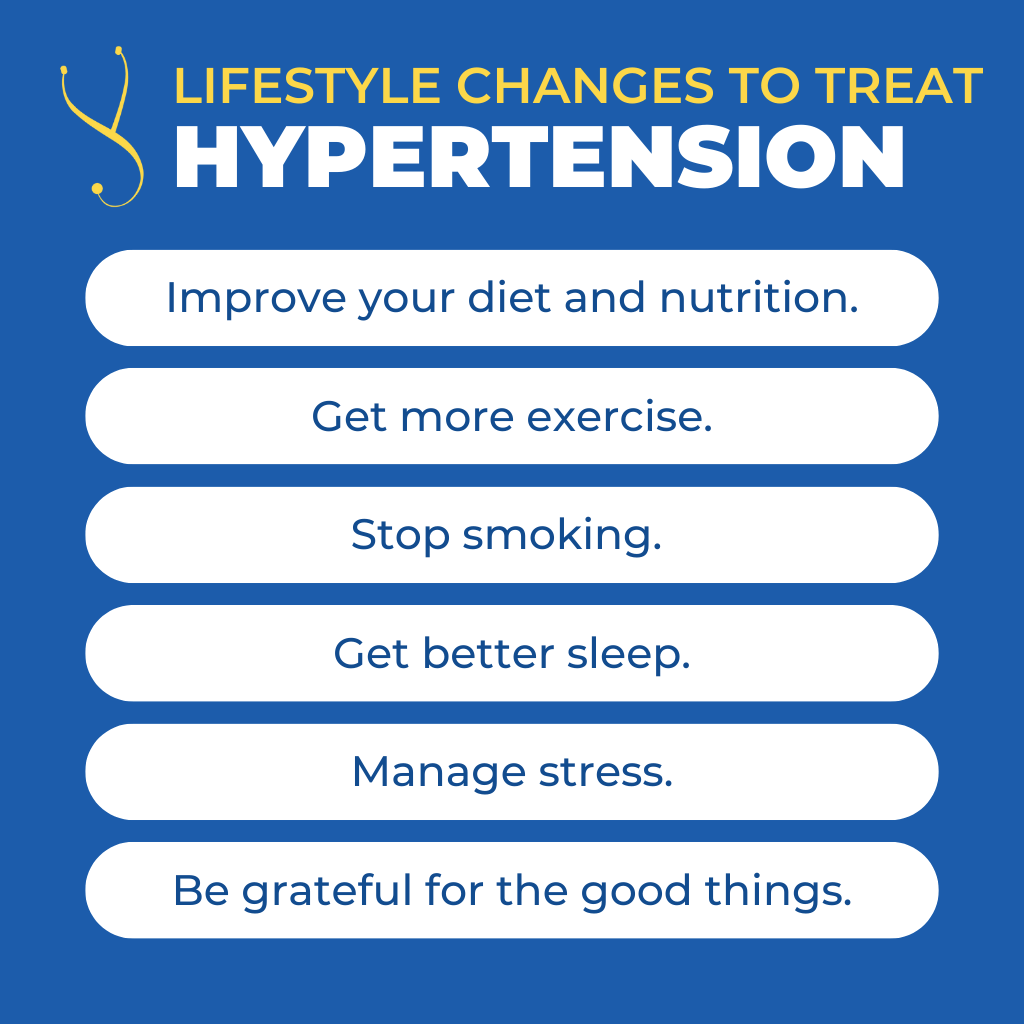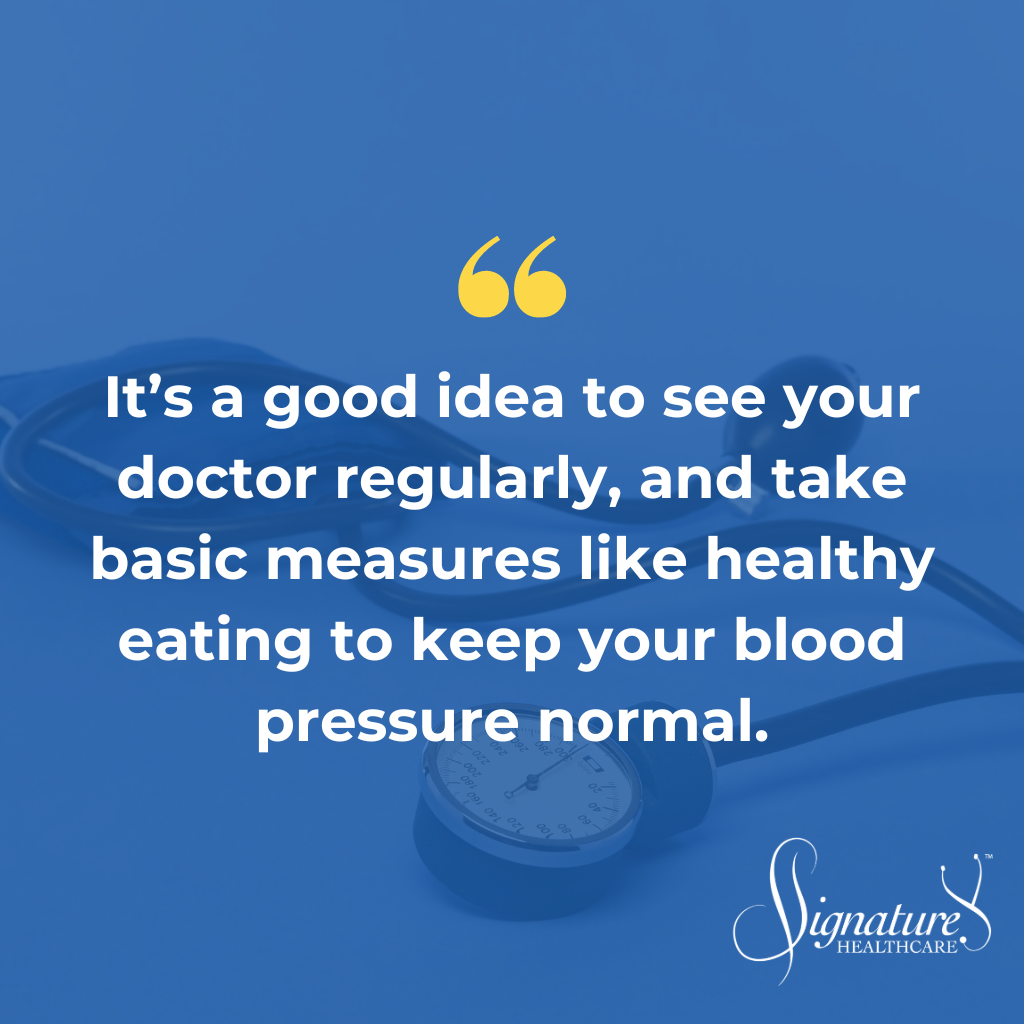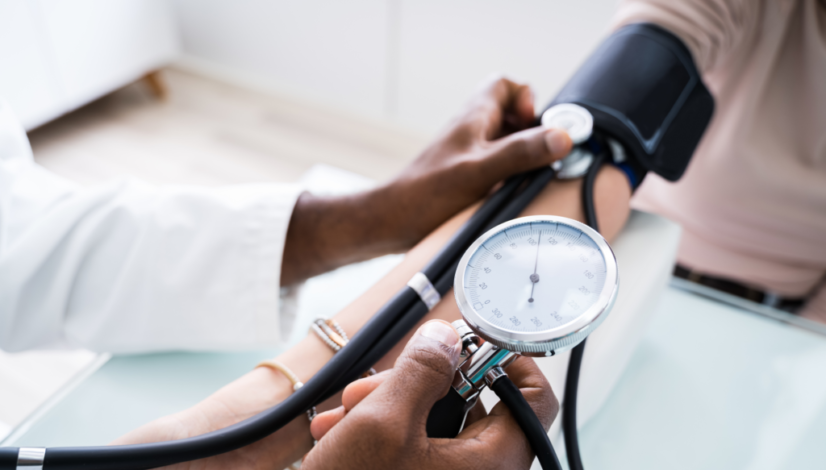High Blood Pressure? Lower It With the Right Diet
You may experience shortness of breath or headaches. But more often than not, you may have high blood pressure with no symptoms at all.
Doctors know the effect blood pressure can have on your risk of stroke and heart disease. That’s why we check it at every medical appointment. We measure the force with which your blood hits the walls of your arteries and watch to see if it increases over time.
So, it’s a good idea to see your doctor regularly… and to take basic measures like eating healthy to keep your blood pressure normal.
Hypertension: The Silent Killer
High blood pressure, also known as hypertension, is considered “the silent killer.” It can build gradually over time and do irreversible damage to your heart and arteries.
In the early stages of hypertension, you may have no outward symptoms. But that doesn’t mean your heart isn’t feeling the pressure.
Constant high pressure forces the heart to work harder to circulate your blood. And because the heart is a muscle, it responds to that extra pressure by enlarging and stiffening. So, from a medical perspective, having a “big heart” isn’t a good thing — it means your heart has become less efficient.
This high pressure also affects major organs like your kidneys, causing the arteries that supply them to thicken, narrow, or scar, so they don’t function as well. Unfortunately, much of this structural damage can be permanent, even if blood pressure improves.
Does Medication Help?
But there’s good news. Once we detect hypertension in a patient, we can prescribe medication to control it — and to prevent long-term complications.
We choose the right blood pressure treatment by considering many factors, including the patient’s age, coexisting health conditions, potential side effects or interactions with other medications, and the body’s response to treatment.
In certain cases, a combination of medications may be more effective than a single drug. We have many classes of drugs in our toolkit to help dilate arteries: diuretics, ACE inhibitors, vasodilators, and medications that target specific receptors.
We find the treatment that works best for you based on your health history — not population-based recommendations.
We’re encouraged by recent research on new classes of drugs that may work on more resistant forms of hypertension, so there’s hope for even the toughest cases!
If your physician prescribes a regimen, it’s critical to take your medication as recommended. Work with your doctor to closely monitor your readings, adjust as needed, and reach the optimum treatment for your hypertension.

Lifestyle Matters
But reliance on medicine alone doesn’t get to the root of the problem: lifestyle. We always recommend lifestyle modifications as the first line of treatment to address hypertension. Positive changes in your lifestyle can help your blood pressure medication be even more effective.
Here are some key lifestyle changes that help treat hypertension:
- Improve your diet and nutrition. Ever heard the phrase “food is medicine”? Healthy food choices can combat high blood pressure. Read below for more details.
- Get more exercise. Exercise, when combined with a healthy diet, is the cornerstone of better overall health. Choose a form of fitness you enjoy that suits your schedule. The current Physical Activity Guidelines for Americans recommend 150 minutes per week of moderate aerobic activity (or 75 minutes per week of vigorous activity), as well as two separate sessions of muscle strengthening. Following this guidance may reduce blood pressure by 11 mmHg/5 mmHg.
- Stop smoking. Your doctor can help you quit. Better yet, don’t start.
- Get better sleep. Sleep is the Fountain of Youth, and poor sleep increases the risk of hypertension and heart disease. Our entire society should strive for consistent, deep, restorative sleep of 7–9 hours per night.
- Manage stress. Yes, exercise and sleep help with this. But there are other ways to reduce stress, from meditation to carefully choosing who you spend time with and how. Your physician can help you work out a plan to reduce stress levels.
- Be grateful for the good things. Adopting an attitude of gratitude can improve your happiness… and your blood pressure!
Nutrition Tips That Make a Difference
When your weight increases, so does your blood pressure, as do all the other factors that make hypertension difficult to control — such as sleep apnea, for example, which deprives your heart of proper oxygenation when it’s in rest-and-repair mode.
Most of us know we should control our weight, but it’s not always easy to eat healthily on a busy day. These simple adjustments to your daily menu can go a long way toward easing high blood pressure:
Consume a diet low in saturated fats and cholesterol, and rich in whole grains, veggies, and low-fat dairy.
Try basing your healthy menu on the Mediterranean diet or the Dietary Approaches to Stop Hypertension (DASH) plan. A normal level of blood pressure is less than 120/80 mmHg; healthy choices can reduce your pressure by 11 mmHg.
Control salt to improve blood pressure by another 5–6 mmHg.
An intake of 1.5–2.5 grams of salt per day is ideal. Check food labels for their sodium content. Or, fill your plate with fresh ingredients, flavors, and spices like cumin, saffron, or fresh herbs that please your palate without the need of added salt.
Watch your alcohol intake.
Although alcohol may help you relax, it can also increase your blood pressure. The Dietary Guidelines for Americans say it’s best for adults not to drink, or, if they do, to limit intake to a maximum of two drinks per day for men and one drink for women.

Get Started Today
Hypertension can feel like a lonely path, but you’re not on your own! Many patients are on the same journey toward better health.
Our most successful members surround themselves with a great team. They find friends and family to lean on and keep them accountable. And they’re supported by a concierge physician who serves as their resource, ally, and biggest advocate.
Even if you don’t notice any symptoms of hypertension, it’s a good idea to schedule a regular visit with your concierge doctor. If we determine your blood pressure needs more attention, we’ll help you take the right steps and put your mind (and body) at ease.

Dr. Ameesha Pandya
Dr. Ameesha Pandya Kansupada, MD, a board-certified Internal Medicine specialist and Fellow of the American College of Physicians, brings over 27 years of diverse medical experience, ranging from hospital to outpatient care. Passionate about holistic health, she combines her medical expertise with yoga instruction and culinary medicine, while enjoying travel, walks, and cooking in her personal time.
Disclaimer: The insights and articles provided on this site are for educational purposes only and are created with the utmost care by healthcare professionals. The content is not intended to be a substitute for personalized medical counsel, diagnosis, or treatment from your healthcare provider. We encourage you to consult a medical professional for any health-related questions or concerns.
Get the latest News
Join the Signature Healthcare Newsletter to get the latest articles, resources, and news delivered directly to your inbox.

